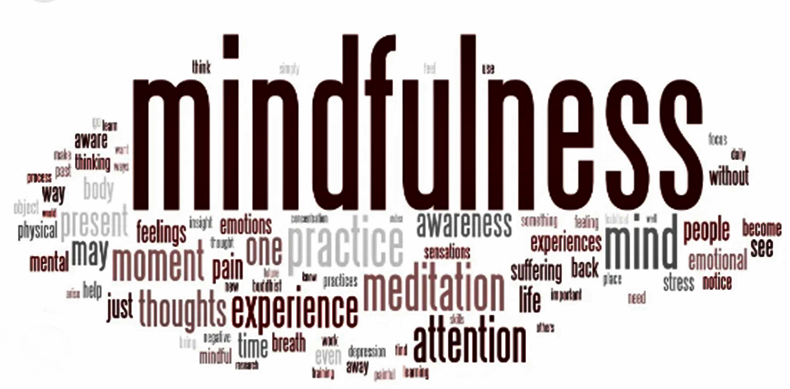MINDFULNESS

By ChatGPT4o-Tome-Human Synthesis-05 July 2024. Source FB.
Mindfulness is a mental practice rooted in the ancient traditions of meditation, particularly within Buddhism, but it has been adapted and secularized in modern times for broader use. Here are the key aspects of mindfulness:
Definition
Mindfulness is the practice of being fully present and engaged in the moment, aware of your thoughts, feelings, and sensations without judgment. It involves maintaining a moment-by-moment awareness of where you are, what you're doing, and what you're experiencing.
Components
- Awareness: This involves paying close attention to your thoughts, emotions, and physical sensations as they occur. It means being conscious of the present moment rather than being caught up in past or future concerns.
- Non-judgment: This aspect involves observing your experiences without labeling them as good or bad. It's about accepting things as they are without trying to change them or reacting impulsively.
- Acceptance: Accepting the present moment and your experiences within it, even if they are uncomfortable or unpleasant. This doesn't mean resignation but rather acknowledging reality as it is.
Practices
- Meditation: The most common form of mindfulness practice, involving focused attention on an object, such as the breath, bodily sensations, or a mantra. Mindfulness meditation encourages staying present and returning to the focus point whenever the mind wanders.
- Breath Awareness: Paying attention to the breath, observing its natural flow, and using it as an anchor to stay grounded in the present moment.
- Body Scan: This involves systematically focusing on different parts of the body, noting any sensations, tension, or discomfort, and consciously relaxing each area.
- Mindful Walking: Walking slowly and paying attention to the movement of your body and the sensations in your feet as they touch the ground.
- Mindful Eating: Eating slowly and savoring each bite, paying close attention to the flavors, textures, and the act of eating itself.
Benefits
- Mental Health: Mindfulness can reduce stress, anxiety, and depression. It promotes emotional regulation and resilience.
- Physical Health: Practicing mindfulness can lower blood pressure, improve sleep, and boost the immune system. It can also help manage chronic pain.
- Cognitive Function: Regular mindfulness practice enhances focus, concentration, and cognitive flexibility. It can improve memory and executive function.
- Relationships: Mindfulness can improve interpersonal relationships by fostering empathy, compassion, and better communication.
Applications
- Therapy: Mindfulness-Based Stress Reduction (MBSR) and Mindfulness-Based Cognitive Therapy (MBCT) are structured programs that use mindfulness to address various mental health issues.
- Education: Mindfulness is being integrated into schools to help students improve focus, reduce stress, and enhance emotional regulation.
- Workplace: Many organizations incorporate mindfulness to improve employee well-being, productivity, and workplace culture.
- Daily Life: Beyond formal practices, mindfulness can be integrated into everyday activities, such as eating, walking, and interacting with others, to enhance overall quality of life.
Techniques to Cultivate Mindfulness
- Journaling: Writing about your thoughts and feelings to increase self-awareness and reflection.
- Gratitude Practices: Regularly reflecting on things you're thankful for to shift focus to positive aspects of life.
- Mindful Listening: Fully engaging and paying attention when others are speaking, without planning your response or getting distracted.
Challenges
- Consistency: Maintaining a regular mindfulness practice can be challenging due to busy schedules and distractions.
- Patience: The benefits of mindfulness often accrue over time, requiring patience and persistence.
- Misconceptions: Some people may think mindfulness means clearing the mind of all thoughts, which is not the case. It's about observing thoughts without attachment.
Conclusion
Mindfulness is a versatile and powerful practice that promotes mental clarity, emotional balance, and overall well-being. By fostering a greater awareness of the present moment, mindfulness helps individuals lead more fulfilling and centered lives.
